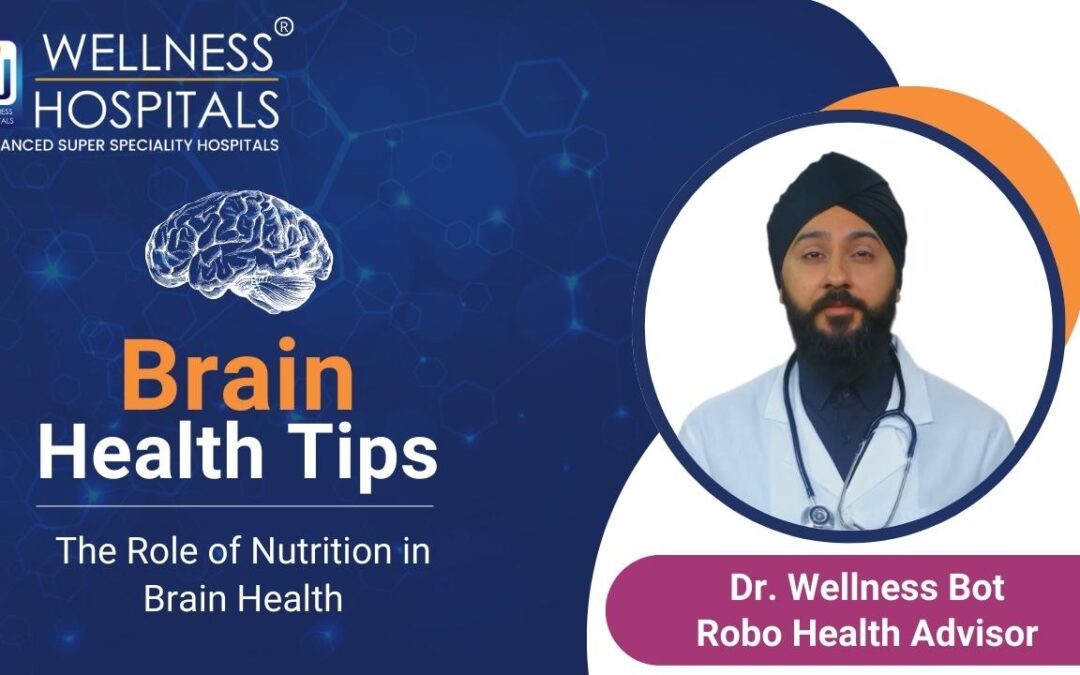The brain is the body’s most complex organ, and its proper functioning is essential for overall health and well-being. It controls our thoughts, emotions, behavior, and senses, among other things. While genetics and environmental factors play a role in brain health, diet is another critical factor that can significantly impact cognitive function and mental health.
Impact of Diet on Cognitive Function
Studies have shown that diet can significantly impact cognitive function, including memory, attention, and processing speed. A diet that is high in processed foods, saturated fats, and added sugars can increase the risk of cognitive decline and impair brain function over time. In contrast, a nutrient-dense diet that includes a variety of fruits, vegetables, whole grains, lean protein, and healthy fats can support brain health and cognitive function.
Nutrients That Promote Brain Health
Omega-3 Fatty Acids
Omega-3 fatty acids, particularly EPA and DHA, are essential for brain health. They play a crucial role in building and maintaining cell membranes and support cognitive function. Research has shown that omega-3s can improve mood, reduce inflammation, and lower the risk of cognitive decline. Foods that are rich in omega-3s include fatty fish like salmon, mackerel, and sardines, as well as walnuts, flaxseeds, and chia seeds.
Antioxidants
Antioxidants protect the brain from oxidative stress and inflammation, which can contribute to cognitive decline. Research has shown that antioxidants can improve cognitive function, reduce the risk of dementia, and enhance overall brain health. Foods that are high in antioxidants include berries, dark leafy greens, and dark chocolate.
B Vitamins
B vitamins, particularly B6, B9, and B12, are essential for brain function and maintaining healthy nerve cells. They play a critical role in neurotransmitter production, which helps regulate mood, memory, and cognitive function. Research has shown that a deficiency in B vitamins can impair cognitive function and increase the risk of depression and dementia. Foods that are rich in B vitamins include leafy greens, whole grains, legumes, and animal products like meat, poultry, and dairy.
Vitamin D
Vitamin D is a fat-soluble vitamin that is crucial for cognitive health and mood regulation. It helps regulate the levels of neurotransmitters like serotonin, which plays a role in mood and emotional well-being. Research has shown that a deficiency in vitamin D can impair cognitive function and increase the risk of depression and dementia. Foods that are high in vitamin D include fatty fish, egg yolks, and mushrooms. You can also get vitamin D through sun exposure, fortified foods, and supplements.
Choline
Choline is a nutrient that is vital for the synthesis of neurotransmitters and the proper functioning of brain cells. It plays a crucial role in memory and cognitive function. Research has shown that a deficiency in choline can impair cognitive function and increase the risk of dementia. Foods that are high in choline include eggs, chicken liver, soybeans, and peanuts.
Foods That Promote Brain Health
Whole Grains
Whole grains, such as quinoa, brown rice, and whole wheat, are excellent sources of complex carbohydrates, fiber, and essential nutrients that benefit the brain. They provide steady energy and support cognitive function, making them an ideal choice for breakfast or as a snack.
Nuts and Seeds
Nuts and seeds, such as almonds, walnuts, and pumpkin seeds, are excellent sources of healthy fats, fiber, and essential nutrients that benefit the brain. They contain omega-3s, antioxidants, and B vitamins, among other nutrients, making them an ideal snack or addition to salads and smoothies.
Lean protein and foods such as coffee, tea, chocolate, and some medications. Caffeine works by blocking the action of adenosine, a neurotransmitter that can cause drowsiness and reduce brain activity.
Studies have shown that caffeine can improve alertness, concentration, and cognitive function, particularly in the short term. However, excessive caffeine consumption can lead to side effects such as jitteriness, anxiety, and insomnia. It is recommended to consume caffeine in moderation and be mindful of its potential effects on individual sensitivity and tolerance.
Hydration and Brain Function
Proper hydration is essential for maintaining optimal brain function. Dehydration can lead to headaches, fatigue, and reduced cognitive performance. It is recommended to drink plenty of water throughout the day and to be mindful of the body’s signals for thirst.
In addition to water, certain foods can also contribute to hydration and brain health. Fruits and vegetables with high water content, such as watermelon, cucumbers, and lettuce, can provide hydration and essential vitamins and minerals for the brain.
The Gut-Brain Connection
Research has shown that the gut and the brain are connected, and the gut microbiome can influence brain function and mental health. The gut microbiome refers to the trillions of microorganisms living in the digestive system, which play a crucial role in digestion, immune function, and metabolism.
Studies have suggested that imbalances in the gut microbiome, such as an overgrowth of harmful bacteria or a lack of diversity, can contribute to mental health issues such as anxiety, depression, and even neurological disorders such as Alzheimer’s disease.
To promote a healthy gut microbiome, it is recommended to consume a diverse range of fiber-rich fruits and vegetables, fermented foods such as yogurt and kefir, and probiotic supplements if needed.
nutrition plays a critical role in brain health and cognitive function. Consuming a balanced and nutrient-dense diet that includes foods rich in omega-3s, antioxidants, B vitamins, vitamin D, and choline, can support brain function and reduce the risk of cognitive decline.
In addition to these specific nutrients, it is essential to stay hydrated and mindful of caffeine consumption and to promote a healthy gut microbiome through a diverse range of fiber-rich foods and probiotics if needed.
By prioritizing nutrition and overall well-being, individuals can optimize their brain function and potentially reduce the risk of mental health issues and neurological disorders.


